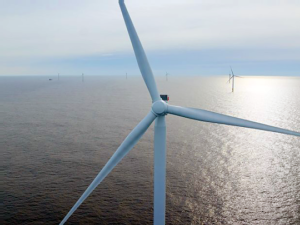Maersk to take $1.7 bln writedown on Brazil oil assets
By: Reuters | Jul 08 2014 at 06:52 AM
Danish oil and shipping group A.P. Moller-Maersk is taking a $1.7 billion writedown on some Brazilian oil assets after results from appraisal drilling came in at the low end of expectations.
The company, which bought stakes in three Brazilian exploration blocks from SK Energy for $2.4 billion in 2011, said on Tuesday that it would take the charge in its second-quarter accounts.
“There was significantly less oil than we had expected,” Chief Executive Nils Smedegaard Andersen said in a conference call with reporters. “In addition, the expectation for the price of oil back in 2011 was more optimistic than today.”
The CEO added that the fields are also becoming more expensive to operate because of rising production costs in Brazil.
The group said its guidance for an underlying profit of about $4 billion this year remains unchanged and that the reassessment of the Brazilian assets would have no impact on Maersk Oil’s long-term production plans because output from those fields had not been included in the plans.
Smedegaard Andersen described the appraisal results for the Itaipu and Wahoo fields as “clearly unsatisfactory” and Jyske Bank analyst Frans Hoyer voiced concerns over the company’s longer-term oil ambitions.
“This is more a question of how to assess Maersk’s ability to succeed in the oil sector, as they have a strategy of 400,000 barrels per day (bpd) by 2020. I think that strategy is being questioned today,” Hoyer said.
That 400,000 bpd target compares with production of 235,000 bpd last year.
The group’s oil production has been falling since 2005, hampered by reduced output from mature fields in the North Sea, and the company is now spending between $3 and $5 billion a year on the development of new fields in Qatar, Kazakhstan, Algeria and Britain.
Maersk Oil is one of the conglomerate’s five core business divisions, alongside the world’s biggest container shipping company Maersk Line, port operator APM Terminals, rig company Maersk Drilling and Maersk Tankers.
At 1034 GMT, Maersk shares were down 0.6 percent at 13,530 Danish crowns.
“I do not think the share price will be reduced by more than a few hundred crowns today in the light of this,” Hoyer said.








